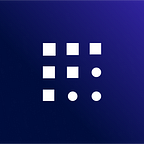Celebrating one year since our public token sale
Today marks a year since Fetch.ai’s very successful IEO on Binance Launchpad. 25 February 2019 was the culmination of nearly two years of development work by our team and we were very pleased to raise $6m in just 22 seconds.
But the success of the public sale was only ever intended to mark the start of the next step of our journey. We set out, and delivered on schedule, an ambitious roadmap for 2019 that concluded with the release of the Fetch.ai mainnet in December. We continue to work with our partners on some exciting and, as yet, unannounced projects. This year we are focusing on building upon the foundations of what we have achieved so far and ensuring we get our technology into the hands of the wider community. To demonstrate what we’re capable of, let’s take a look at how far we’ve come over the past year:
March 2019: As part of our ongoing partnership with Outlier Ventures, we unveiled bridging software that combines our technology with that of Sovrin, in order to create ANVIL. This gave our autonomous agents unique identity verification capabilities for the first time.
April: We released the Fetch.ai testnet, giving everyone, not just those who took part in the token sale, access to use and build on our decentralized network.
May: We announced a memorandum of understanding (MoU) with T-Labs, the R&D unit of Deutsche Telekom.
We won the Trusted IoT Alliance Smart E-Mobility Challenge at Bosch Connected World. The award was in recognition of our innovative solution, called ‘My Easy Charge’, that we successfully built in collaboration with Bosch, T-Labs and Share&Charge.
We were also awarded an honourable mention in the best application system demo category for our electric car charging demo at the prestigious International Conference on Autonomous Agents and Multi-Agent Systems in Montreal.
June: Head of research Jonathan Ward gave a presentation at the Festival of AI and Emerging Technology in London about how Fetch.ai harnesses the wisdom of digital crowds.
July: Fetch.ai held its first meetup in South Korea.
August: We released our alpha mainnet. For the first time, all of the elements of our technology linked together as a complete network. The release included an enhanced block explorer.
We also attend various events and conferences in August. CTO Toby Simpson spoke on stage at Web3 Summit in Berlin to outline how Fetch.ai’s technology will revolutionize decentralized finance. He also gave a presentation at Binance’s first ever meetup in London.
September: We launched the beta version of the Fetch.ai mainnet. This included unique and improved AI-powered smart contracts. It also fully enabled our decentralized random beacon.
Furthermore, we unveiled ArBot: a data arbitrage bot and tool for moving datasets. This was a consequence of a collaboration between Outlier Ventures, Ocean Protocol and ourselves.
October: We announced a partnership with Turkish steelmakers including Baştuğ Metallurgy to develop the first AI-powered decentralized metals exchange and recorded the historic first trade on the exchange. The project received an additional boost when we announced a partnership with Grey Swan Digital a few weeks later.
We launched our highly anticipated staking program. The program has been a huge success. Find out how you can get involved in the next auction.
In what was a very busy month for the team, we also played a major part at the Diffusion DevCon in Berlin. At the event, one of the developer teams, Datarella, used the Fetch.ai network to develop an optimized parking solution and picked up two of the hackathon’s main prizes.
November: The hard work of our team was recognised when Fetch.ai was ranked number five in the world in terms of activity of all ERC-20 based development projects.
CEO Humayun Sheikh spoke at the Binance meetup in Istanbul alongside Changpeng ‘CZ’ Zhao. Back in London, we provided an overview of our progress in 2019 during a meetup in the capital.
We also shared a tutorial explaining how developers could optimize parking by creating car park agents using a Raspberry Pi. In addition, we published a video outlining how our autonomous agents would benefit the rail industry. This use case was presented to senior industry officials at the Rail Industry Association annual conference.
December: As promised, the Fetch.ai mainnet was released on 19 December. Take a look at the code that made it possible in our GitHub repository.
While the mainnet was unquestionably the main topic of conversation within the community, we were also proud to announce our partnership with Cambridge University’s Institute for Manufacturing. Together we will develop supply chain use cases that utilize AI multi-agent systems and our next-generation blockchain.
January 2020: We revealed the results of a trial we conducted with our partners at Warwick Business School. The results showed our autonomous agents could reduce daily energy costs at Warwick University’s student campus by 13–18%. Find out how.
February: We co-organized and participated at the Blockchain for Europe Summit at the European Parliament in Brussels. The event featured numerous European policymakers, leaders of industry and blockchain specialists.
We also unveiled our cryptographic breakthrough that improves security and dramatically reduces the time it takes for transactions to be confirmed.
As you can see, we have achieved a great deal in the year since our public sale took place. We have built the technological foundations necessary for future growth, and, through the implementation of use cases with various partners, we are beginning to demonstrate the real world impact our network will have in the months and years ahead.
Get Involved
- Find out more about Fetch.ai’s Autonomous Economic Agents by visiting our developer website. Alternatively, read our documentation, which includes some innovative demos.
- Join our Developer Slack Channel and explore our growing GitHub repository.
- Watch videos outlining our technology and follow our tutorials on YouTube.
- If you’re not a developer, you can stay up to date with our progress by joining us on Telegram or by following us on Twitter.
